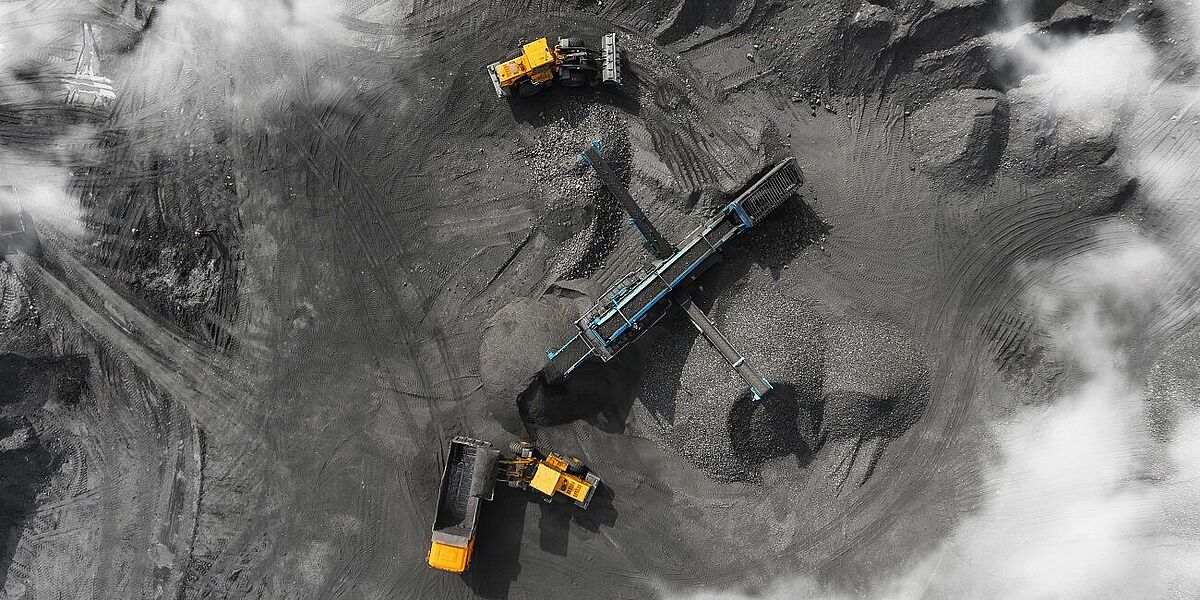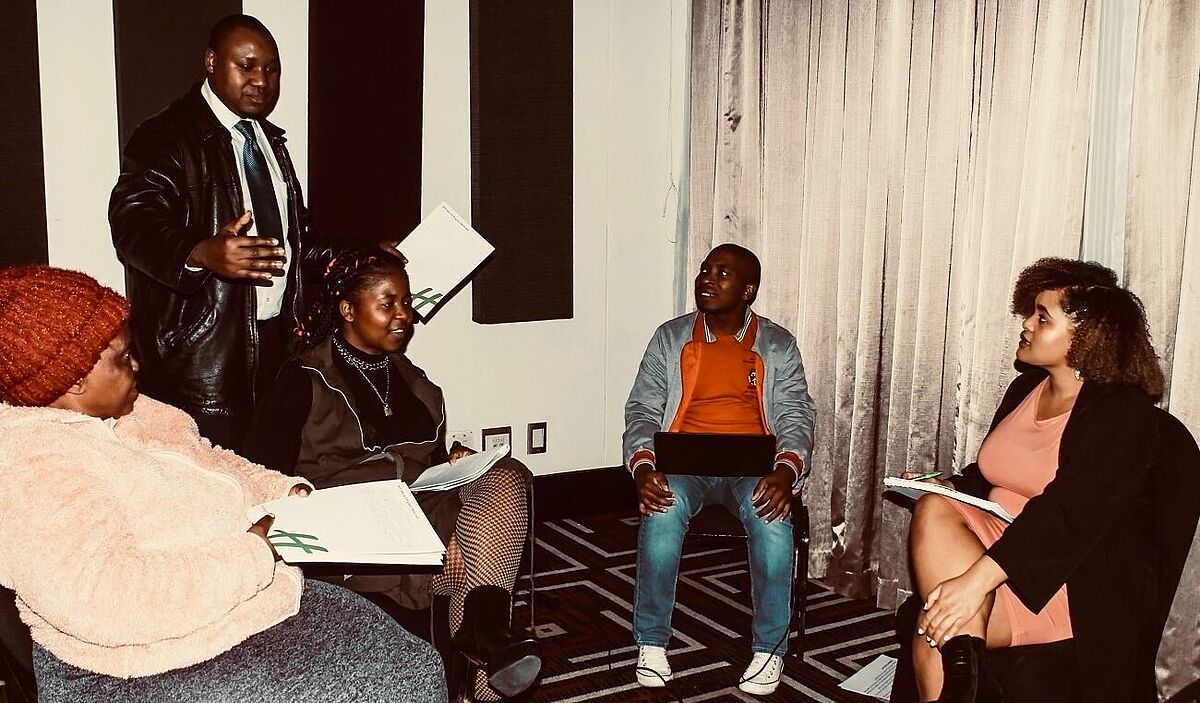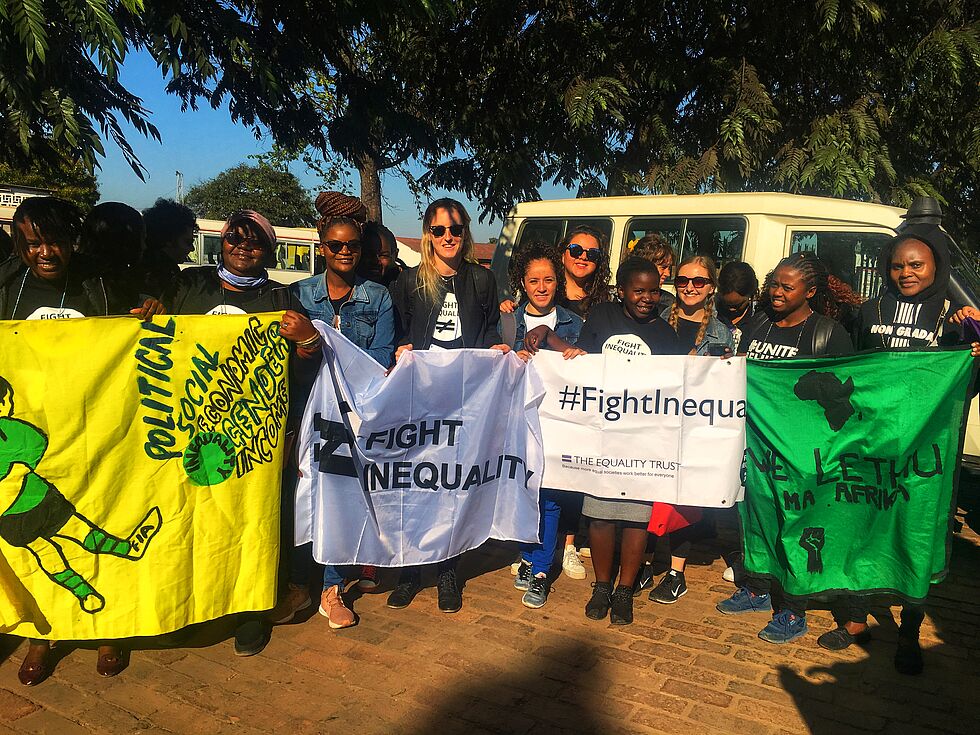Illicit financial flows are bleeding African wealth
There is an urgent need to stem illicit financial flows out of Africa, in particular from the extractives sector exploiting the continent’s vast natural resources. With government often complicit with business and international interests, legislation is often slow and inadequate. But civil society can make a change in the shorter term, and help redirect that revenue back into economic and social development at national and regional levels.
Most of Africa is resource-rich, and the extractive industry is one of the largest income generators across the content.
However, in many sub-Saharan economies money from the extractive sector is being siphoned abroad and notably to regional tax havens through corrupt activities and nefarious private-public relationships. The problem is not limited to this sector, but it is here that it is the most severe. Countries with large natural resources are the most vulnerable.
How significant are these domestic resources for development?
African countries need to find significant extra financial resources if they want to achieve the UN Sustainable Development Goals (SDGs) by 2030. The shortfall is estimated at between 600 billion and 1.2 trillion US dollars annually for the continent, according to the United Nations Economic Commission for Africa (ECA). Domestic resource mobilization has the potential to make an important contribution to country’s wealth through increased tax revenue and other forms of income. This is recognized by SDG 17, which emphasizes the role of greater domestic resource mobilization, alongside improved public-private partnerships.
This is part of a wider call to move beyond business as usual and to reform aspects of international trade to better serve the SDGs. This in turn is echoed by the African Union’s Agenda 2063, its own vision of a prosperous and secure future for the continent.
However, developments such as the failure of the Doha Round of trade talks and Brexit indicate that national self-interest still has the upper hand over international cooperation. Meanwhile, achieving the SDGs and Agenda 2063 will require an immense increase in investment, redirection of financial spending, innovative financing methods and an unprecedented level of coordination between the public and private sectors.
Yet the mining industry is one of the most looted sectors in our country. According to the Thabo Mbeki Report of the High Level Panel on Illicit Financial Flows from Africa, the continent as a whole loses up to 50 billion dollars annually, across all economic sectors.
It should be mentioned that South Africa has done an excellent job of aligning its National Development Plan (NDP) with both the Agenda 2063 and the 2030 Vision of the SDGs. South Africa has more than half of the world’s reserves of manganese, chromium and platinum group metals, and 40 per cent or more of the world’s vanadium, gold and vermiculite reserves. Yet the mining industry is one of the most looted sectors in our country. According to the Thabo Mbeki Report of the High Level Panel on Illicit Financial Flows from Africa, the continent as a whole loses up to 50 billion dollars annually, across all economic sectors. To increase our tax revenue, plugging the holes where revenues are being lost would be a logical first step, right?
The largest issue with illicit financial flows we’ve found is the intricate, complex and sophisticated global network it operates within. This has been confirmed by the revelations of the so-called Panama and Paradise Papers, as well as by multiple corruption inquiries into state capture in South Africa, Angola and Zimbabwe. The political and economic elite benefit from this system. They have created and maintain oppressive but legal systems such as tax havens and tax breaks via special economic zones or trade agreements. The issues thus call for a complete overhaul of the global financial architecture, and for a new system that benefits more than just a few at the top.
I don’t see this happening anytime soon. What can we do as civil society today?
There is an onus on the revenue collections agency and related government departments such as trade and industry to root out corruption, which facilitates illicit financial flows.
We cannot talk about increased tax revenue without addressing the failure to adequately collect taxes from the biggest players in our economy. We cannot talk about domestic resource management without addressing the limited capacity of designated agencies, including intra-state departments. This is where policy implementation often stops, as there is a lack of communication, capacity or funding to carry out tasks. In this regard, we can continue to pressure big businesses to disclose taxes and other fees paid to government, and for mandatory disclosure in South Africa. Whilst mainstream and often state-owned and controlled media continues to frame corruption by a few individuals as the core of the African development issue, its sweeps the bigger culprit, namely illicit financial flows, under the carpet. Civil society experts need to ensure that their advocacy includes educating and sharing knowledge down to the grass root communities where these economic activity occurs, and where their impact is in fact most detrimental.
Civil society can continue to play a watchdog role over the independence and legitimacy of the South African Revenue Service as an unbiased and fair revenue collector. Furthermore, civil society can continue to lobby at community level for the disclosure of financial reports to communities where they operate.
These measures will to a certain degree enable the tracking of the money, identifying holes where revenues are being lost, plugging those holes and redirecting the funds towards servicing the development agenda.
###
Riska Koopman is Tax Justice Programme Officer at the Economic Justice Network based in Cape Town, South Africa. FES South Africa and EJN have partnered since 2014 to facilitate South African civil society engagement at international fora such as the G20 and BRICS. For more information on this work contact FES South Africa and follow their daily updates on Facebook and Twitter.
About FES Connect
Connecting people, in the spirit of social democracy, we source and share content in English from the German and international network of the Friedrich-Ebert-Stiftung.









